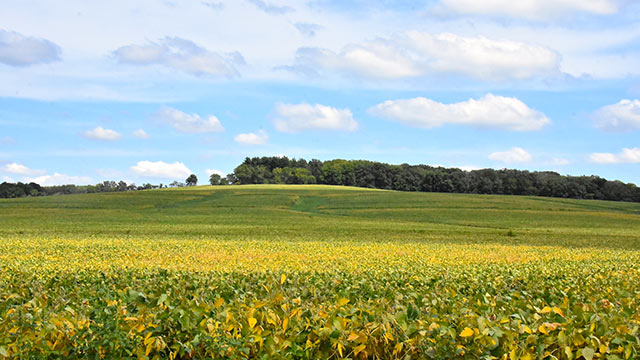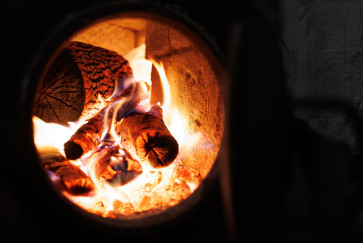A webinar at noon on Monday, May 17 will provide an introduction to the Illinois climate assessment. Click here for more details.
Illinois is undergoing a rapid change in weather patterns that already has started to transform the state, a major new scientific assessment finds.
The assessment foretells long-term, serious effects on cities and rural communities alike from climate change that include periods of extreme heat, increased precipitation and more intense storms, particularly if immediate actions aren’t taken to lessen the threat.

Led by The Nature Conservancy, the report is the first-of-its kind, uniting expertise from 45 scientists, including Northwestern University professors William Miller and Aaron Packman.
Virtually all aspects of life will be affected, ranging from the health of humans, plants and animals to farming operations, in a state that is both the nation’s fifth-largest agricultural producer and home to the third-largest city.
“This assessment reveals how critical the crisis has become,” said Michelle Carr, state director of The Nature Conservancy in Illinois. “Decisive action and policies can still prevent our state from being forever altered, if we act now.”
The report is unique in that it focuses specifically on local impacts to Illinois, unlike most climate reports targeted at the national or global level.
“I believe that this report will help Illinois communities understand climate change in a more tangible way and will empower more people to take action to address climate change and guide Illinois in a more resilient direction,” Miller said. “Taking action now to reduce emissions and to build resilience is critical for combatting climate change, and it can also lead to a more equitable and sustainable future. Movement towards a greener economy can bring new jobs and breathe new life into Illinois communities. Such efforts to address climate change not only benefit people, but also provide for the health and biodiversity of natural habitats and wildlife in Illinois.”

Miller is a professor of chemical and biological engineering at Northwestern’s McCormick School of Engineering and director of the Center for Engineering Sustainability and Resilience. Part of the assessment’s coordination team, Miller also led the section detailing knowledge and research priorities. Packman, a professor of civil and environmental engineering in McCormick and director of the Northwestern Center for Water Research, contributed to the section outlining climate impacts on watershed hydrology across the state, including water availability, changes in river systems and increasing impacts of urban flooding.
The comprehensive report found that:
- The average daily temperature has increased by 1-2°F in most areas, and nighttime temperatures have risen about three times the rate of daytime temperatures over the past 120 years.
- Precipitation has increased 5% to 20%, varying across the state, and the number of days with at least 2 inches of rain has increased by 40% over the past 120 years.
- By the end of the century, unprecedented warming of 4°F to 14°F is likely, depending on the total emissions released into the atmosphere. That warming would be accompanied by large increases in extremely high temperatures, more intense storms and notably higher annual precipitation totals.
- By the end of the century, total annual precipitation is projected to increase by 2-10%.
The assessment also reveals how climate challenges disproportionately affect low-income communities and communities of color, where environmental injustice and economic disparities have left more people vulnerable to health problems such as asthma, owing to higher air pollution rates, less access to parks and open spaces, and more. The findings highlight the importance of understanding the disparate impacts of climate change and developing equitable solutions.
I believe that this report will help Illinois communities understand climate change in a more tangible way and will empower more people to take action to address climate change and guide Illinois in a more resilient direction.”
Information on the impacts specific to Illinois can help local leaders develop just and effective approaches to climate change, ranging from transitioning to a clean energy economy to preparing the state for the impacts of a wetter, warmer climate.
The report was co-led by Donald J. Wuebbles, professor of atmospheric sciences at the University of Illinois; Karen Petersen, climate change project manager at The Nature Conservancy; James Angel, the Illinois state climatologist from 1997-2018; and Maria Lemke, director of conservation science at The Nature Conservancy. Co-authors represented Northwestern, the National Oceanic and Atmospheric Administration, the Centers for Disease Control, the U.S. Forest Service, the University of Illinois at Urbana-Champaign, University of Edinburgh, University of Illinois at Chicago and North Carolina State University.


